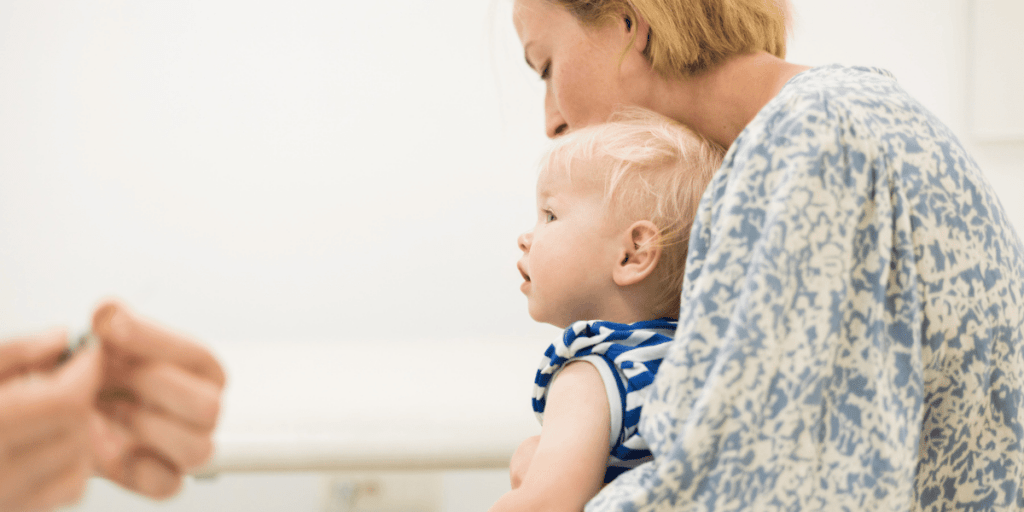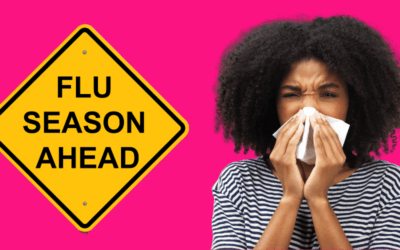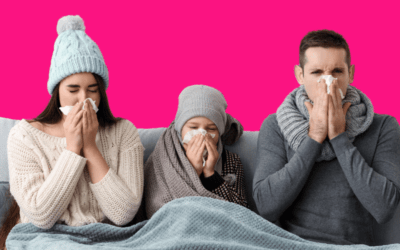The Joint Committee on Vaccination and Immunisation (JCVI) has proposed the implementation of a universal chickenpox (varicella) vaccination programme within the routine childhood schedule in the UK. They have suggested using a two-dose schedule, using the combined MMRV (measles, mumps, rubella and varicella) vaccine administered at 12 and 18 months of age.
This recommendation stems from a thorough review of evidence, indicating that countries incorporating varicella into their routine vaccination programmes have observed a rapid and significant reduction in childhood varicella cases. Currently, Australia, the US, Canada, and Germany include the varicella vaccine in their routine childhood immunisation schedules, with many years of data supporting its safety and efficacy. The introduction of a varicella vaccination programme in the UK aims to prevent severe cases of varicella and minimise the associated rare but significant complications.
What is varicella (chickenpox)?

Varicella, also more commonly referred to as chickenpox is an acute, highly infectious disease that is caused by the varicella zoster virus (VZV). It is a very common illness which can cause an itchy, blister-like rash that can lead to serious complications. In particular in very young infants, pregnant women and those with compromised immune systems.
Varicella is transmitted directly by contact with chickenpox blisters from an infected individual. In addition the virus can be spread via airborne fluid droplets from the blister that become suspended in the air. Varicella is very contagious. On average 90% of people who have never had chickenpox that come in to contact with an infectious individual will become infected.
What are the symptoms and complications of varicella infection?

Symptoms of varicella are characterised by a fever, muscle aches, pains and a generalised rash. The rash can form fluid filled blisters spreading across the face, scalp, trunk and limbs which can be incredibly itchy and painful. Whilst most infections are mild, chickenpox can cause serious complications in certain risk groups, leading to hospitalisation from complications including bacterial skin infections, pneumonia, meningitis and encephalitis. Rarely, varicella infection can be fatal.
Who is the varicella vaccine currently available for?
Currently the vaccine is only available on the NHS to healthy family members and contacts of immunocompromised individuals who are serious risk of complications. It is also available to healthcare and laboratory workers who may be exposed the virus who are non-immune to chickenpox. The varicella vaccine is also available privately in the UK to those who wish to be vaccinated and do not fall into the recommendations from the NHS.
How common is chickenpox infection?
According to data from the UKHSA, it is estimated that around around 50% of children have had chickenpox by the time they reach 4 years old and 90% have had it by the time they are 10 years old. However the JCVI have expressed concern that due to limited social mixing during the COVID-19 pandemic, there is now a ‘larger pool’ of children who are susceptible to the disease than there were previously.
So why have we not had a varicella vaccine programme before?

Whilst the introduction of a universal varicella vaccine programme has been the discussion of many previous JCVI meetings, they had always decided against introducing the programme due to concerns it could lead to an increase in cases of shingles. Particularly in middle aged adults who are not old enough to be vaccinated as part of the current shingles programme.
Shingles is caused by a reactivation of the varicella zoster virus in those who have previously had chickenpox as the virus lays dormant in the body following infection. It is thought that exposure to the varicella virus in adulthood helps boost shingles immunity and prevent cases of shingles which is why the JCVI had previously advised against implementing a universal varicella vaccine programme.
However, in their most recent recommendations, the JCVI reviewed updated evidence that demonstrated that any immunity from exposure to circulating chickenpox is much shorter than previously thought (around 1-5 years as opposed to 20 years). Data from the US, where a universal varicella vaccination programme has been in place since 1995, similarly supports the notion that vaccinating children does not result in an increase in adult shingles incidence.
Will there be a varicella vaccine catch up programme?

The JCVI have recommended that a catch up programme should also be implemented to prevent a gap in immunity. There is a concern that because vaccination will significantly reduces varicella circulation, susceptible people may continue to be vulnerable to catching varicella as they enter adulthood, especially since there will be more children who are at risk of infection as a result of the COVID-19 pandemic
More research is needed to decide how the catch-up campaign will be implemented, although the JCVI’s early ideas propose a single varicella vaccination to be cost-effective for children under the age of 5. However, further research is needed to evaluate whether it will be cost effective for children aged 6-11 years old.
When may these changes be implemented?
It is unclear when or how a universal varicella vaccination programme will be implemented at this stage as further analysis and review will need to be made following the JCVI’s recommendations. However, it is possible that it may coincide with the introduction of the proposed MMR schedule change to two doses at 12 months and 18 months, as previously recommended by the JCVI in 2022. It is hoped that bringing forward the second dose of the MMR vaccine from the current pre school age of 3 years and 4 months will help to boost protection against measles while also improving uptake rates amongst the concern about rising cases.
While the varicella vaccine is available both alone and in combination with MMR, the JCVI believes that both doses should be the combined MMRV vaccine. The recommendation of the MMRV vaccine means that fewer injections will be required each time a child attends for vaccination, which should help to maintain a high vaccine uptake.
The introduction of the varicella vaccine in the UK’s routine childhood immunisation schedule would mark a significant step forwards in varicella prevention. The JCVI’s support of a two-dose schedule, coupled with evidence from countries already implementing this, highlights the potential for a substantial reduction in varicella cases and in preventing severe complications of the disease. We look forward to hearing and reading more about the recommendations of how a varicella programme may look in the future.




